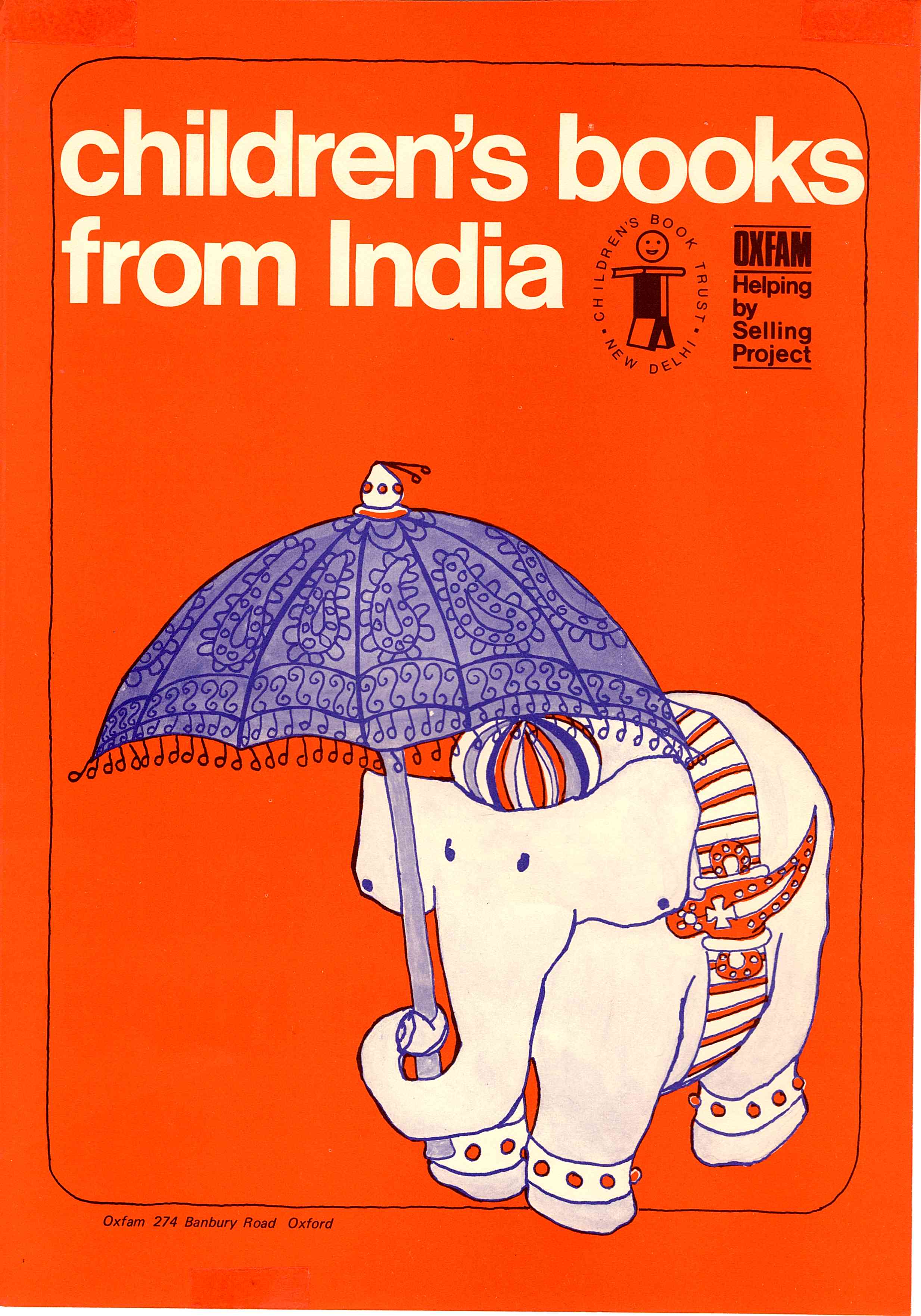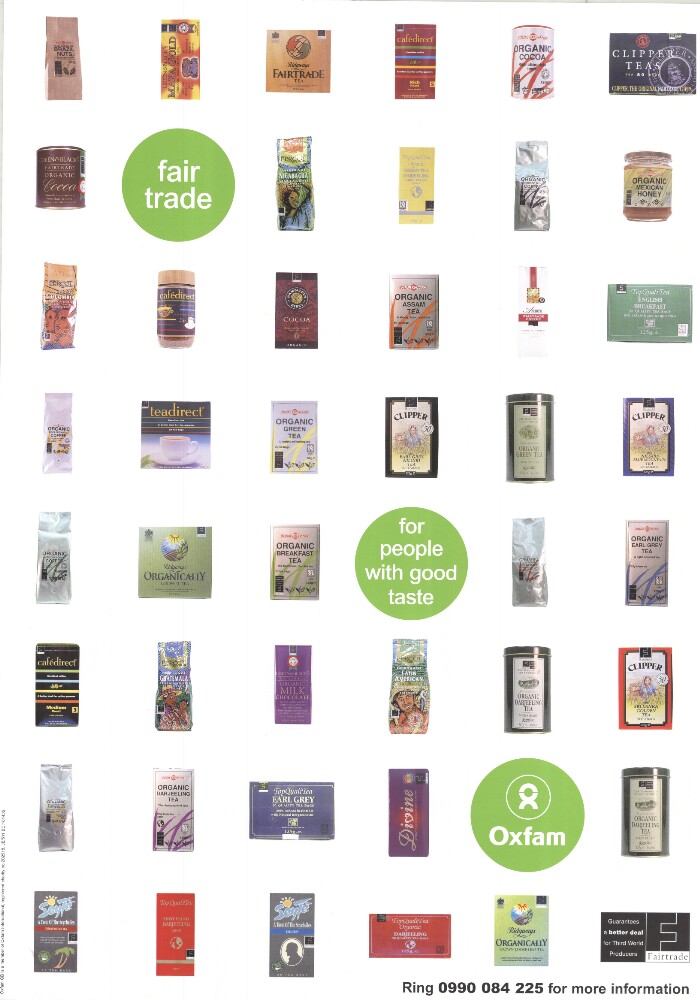Back in 1959, Pastor Ludwig Stumpf from the Hong Kong branch of the Lutheran World Federation, was invited by Oxfam to speak at their World Refugee Year conference. With him he brought a suitcase of handicrafts made by Chinese refugees. Although the suitcase containing dolls, tea cosies and slippers, amongst other items, didn’t capture the interest of Oxfam at that time, the list of contents did make it into the archives, and has recently been catalogued.

Letter with the list of sample handicrafts in package sent ahead ready for Rev. Stumpf’s arrival in the UK [DIR/2/3/4/48]

Poster advertising children’s books as part of the Helping by Selling Project [MS. Oxfam COM/1/8/353]
Oxfam felt that they could do more to help establish viable businesses, and further increase employment and improve the lives of those in need. They realised that simply selling goods made overseas did not guarantee an ongoing livelihood for communities.
The resolution was to cultivate a business partnership with craftspeople, and protect the vulnerability of poor producers who could be easily exploited. Therefore, in 1975, Oxfam’s fair trade scheme (Britain’s first ever) was created. The scheme was named Bridge, which ‘sums up very aptly the bridging link of trade and support between producers in developing countries and their customers in the UK and Ireland.’[2] Oxfam paid fair prices for the goods produced, as well as a dividend and the opportunity to apply for grants for improvements to workplaces. It also offered help with product development and marketing.
In the early 2000s, Oxfam launched the Make Trade Fair campaign, advertisements for which featured celebrities such as Colin Firth and Bono being covered in coffee, sugar and other fair trade products. The memorable posters, which can be accessed in Digital Bodleian, highlighted how farmers overseas were being trapped in a poverty cycle by trade rules.
Poster of Colin Firth being showered with coffee highlighting the plight of poor farmers [MS. Oxfam COM/1/8/153/7]
[2] Rachel Wilshaw, ”Invisible Threads: Oxfam’s Bridge Programme.” Focus on Gender, vol. 2, no. 3, 1994, pp. 23–28. JSTOR, JSTOR, www.jstor.org/stable/4030240.

